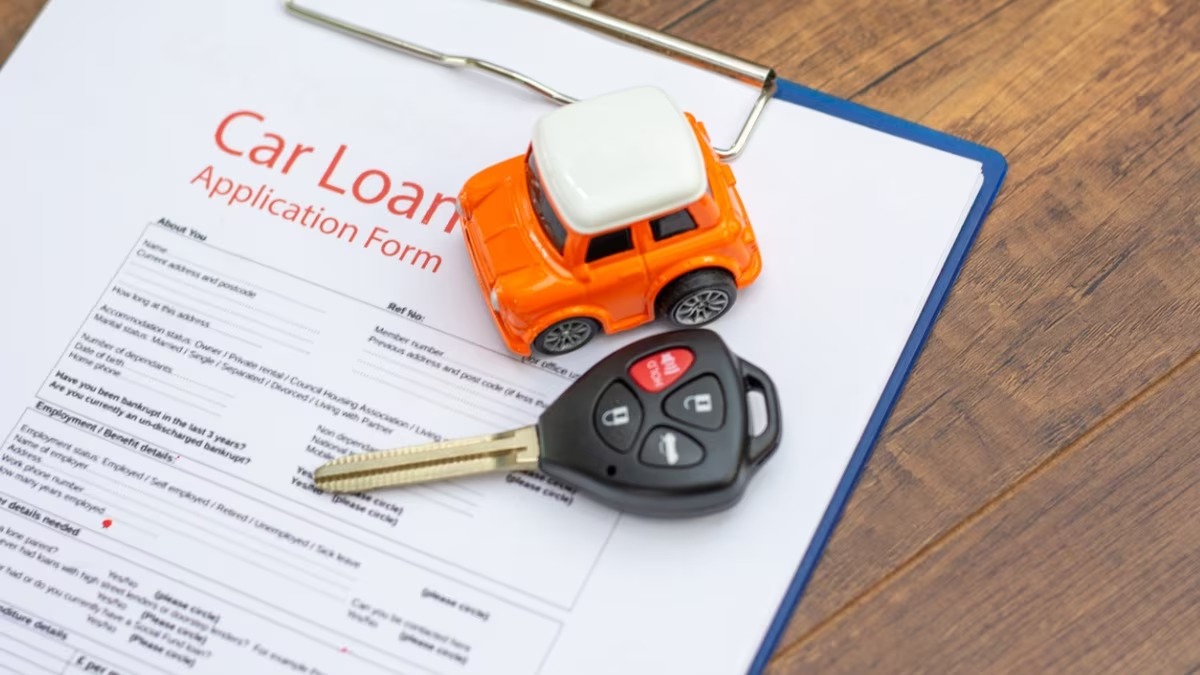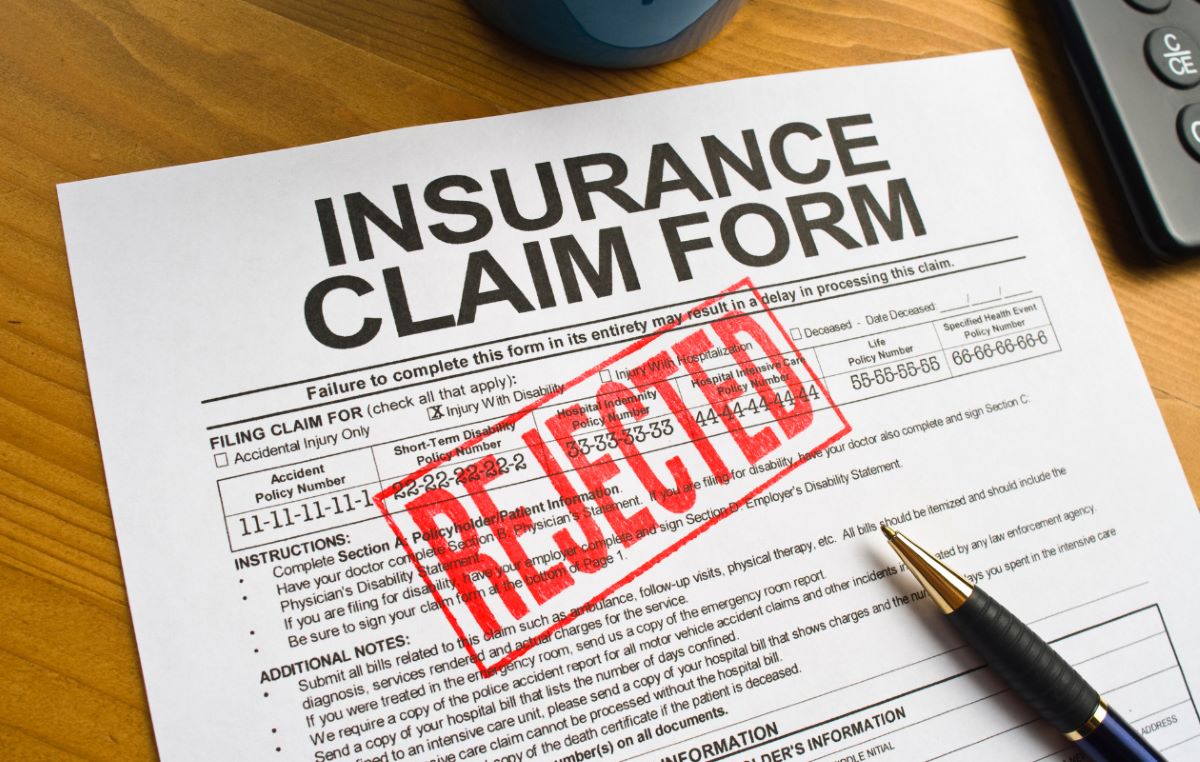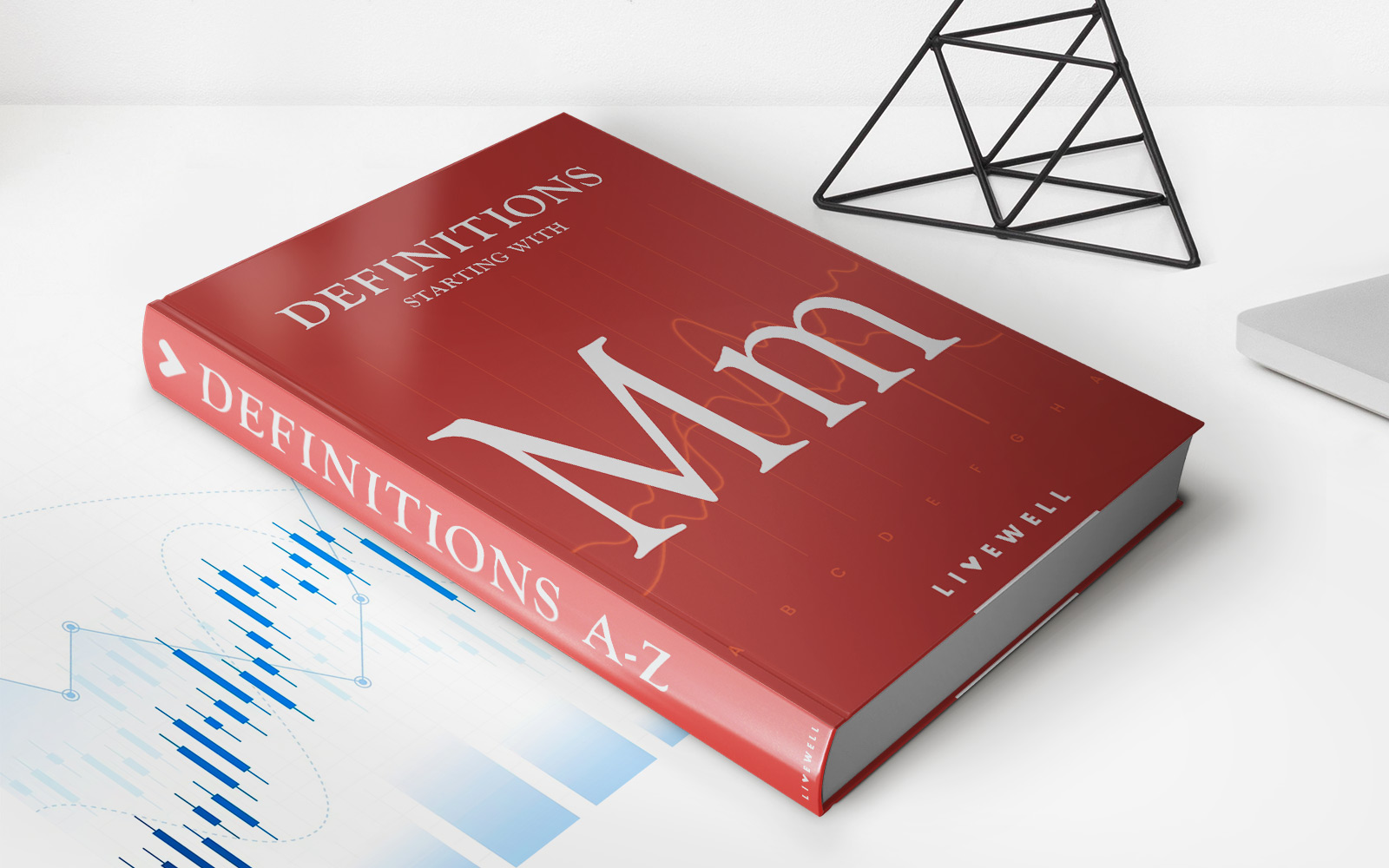

Finance
What Dealerships Work With Bad Credit
Modified: March 6, 2024
Looking for car financing options? Discover which dealerships specialize in working with bad credit. Get the financing you need regardless of your credit history.
(Many of the links in this article redirect to a specific reviewed product. Your purchase of these products through affiliate links helps to generate commission for LiveWell, at no extra cost. Learn more)
Table of Contents
Introduction
Dealing with bad credit can make finding financing for a car purchase challenging. Many traditional lending institutions may turn down applicants with a low credit score, leaving them feeling discouraged and wondering where to turn. However, there is good news for those with bad credit – there are dealerships that specialize in working with customers who have less-than-perfect credit.
These dealerships understand that everyone’s financial situation is unique and that there are often valid reasons behind a low credit score. They recognize the importance of providing opportunities for individuals to rebuild their credit while also obtaining reliable transportation.
In this article, we will explore the concept of bad credit and the importance of finding the right dealership to work with. We will discuss the different types of dealerships that cater to individuals with bad credit and provide tips on how to research and choose the best option for your needs. Additionally, we will explore the financing options available for bad credit buyers and offer guidance on steps you can take to improve your credit moving forward.
Whether you have experienced financial setbacks in the past or are a young adult just starting to build credit, understanding how to navigate the car buying process with bad credit is crucial. By equipping yourself with the necessary knowledge, you can ensure a smooth and successful car buying experience while also setting yourself up for future financial success.
Understanding Bad Credit
Before diving into the options available for buying a car with bad credit, it’s important to have a solid understanding of what bad credit actually means. Your credit score is a numerical representation of your creditworthiness and is used by lenders to determine your eligibility for loans and credit cards.
A low credit score, typically below 600, is commonly referred to as bad credit. This can be the result of late payments, high credit card balances, bankruptcy, or even a lack of credit history. When you have bad credit, it indicates to lenders that you may be a risky borrower, making it more difficult to secure financing.
Having bad credit can impact your life in various ways, and obtaining an auto loan is no exception. Lenders may be hesitant to approve your loan application or charge you higher interest rates due to the perceived risk associated with bad credit. This can result in higher monthly payments and overall more expensive financing.
It’s important to note that while bad credit may limit your options when it comes to lenders, it doesn’t mean that you can’t secure a car loan. There are specialized dealerships that understand the challenges individuals with bad credit face and are willing to work with them to find a suitable financing solution.
Understanding the impact of bad credit on your car buying process will help you approach dealerships with realistic expectations and increase your chances of finding a dealership that is willing to work with you.
Importance of Finding the Right Dealership
When it comes to buying a car with bad credit, finding the right dealership is paramount. Not all dealerships are equipped or willing to work with customers who have poor credit, which is why it’s crucial to do your research and find a dealership that specializes in bad credit financing.
One of the main reasons why finding the right dealership is important is because they have experience and expertise in navigating the challenges that come with bad credit. They understand the unique circumstances that bad credit borrowers face and can offer tailored solutions to meet their needs.
Working with the right dealership also gives you access to a wider range of financing options. They have established relationships with lenders who specialize in bad credit financing, increasing your chances of securing a loan at a reasonable interest rate. These dealerships have the resources to help you find financing that aligns with your budget and financial goals.
In addition to financing options, the right dealership can also provide valuable guidance and support throughout the car buying process. They can help you select a vehicle that fits your needs and budget, ensuring that you don’t end up with a car that you can’t afford. They can also provide information about extended warranties, maintenance plans, and other add-ons that may benefit you in the long run.
Another advantage of working with the right dealership is that they are often more flexible when it comes to negotiating the terms of the loan. Since they specialize in bad credit financing, they understand that borrowers may have limitations and can work with you to find a solution that works for both parties.
Overall, finding the right dealership is crucial because it sets the foundation for a positive car buying experience. They can help you navigate the challenges of bad credit financing, provide access to a wide range of financing options, and offer valuable guidance throughout the process. Taking the time to research and choose the right dealership will greatly increase your chances of securing a loan and getting the reliable transportation you need.
Types of Dealerships that Work with Bad Credit
When it comes to buying a car with bad credit, it’s essential to find a dealership that specializes in working with customers who have less-than-perfect credit. These dealerships understand the unique challenges faced by individuals with bad credit and have specific programs in place to accommodate their needs. Here are some types of dealerships that are known to work with bad credit:
- Special Finance Dealerships: Special finance dealerships focus on providing financing options for customers with bad credit or no credit history. They have partnerships with lenders who specialize in financing individuals with low credit scores. These dealerships have experience working with a wide range of credit situations and can help you navigate the loan application process.
- Buy Here Pay Here Dealerships: Buy here pay here (BHPH) dealerships are unique because they act as both the car dealership and the lender. They finance the vehicles directly to customers without involving third-party lenders. BHPH dealerships are often more lenient when it comes to credit requirements, making them an option for those with extremely bad credit or no credit history at all. However, it’s important to note that interest rates and vehicle prices at BHPH dealerships may be higher compared to traditional dealerships.
- Credit Union Dealerships: Some credit unions have their own car dealerships or work with local car dealerships to provide financing options for their members. Credit unions are known for offering more favorable loan terms and interest rates compared to traditional banks. If you are a member of a credit union, it’s worth exploring whether they have partnerships with dealerships that cater to individuals with bad credit.
- Online Lenders and Dealerships: The rise of online lending platforms has made it easier for individuals with bad credit to find financing options. Online lenders and dealerships often have a streamlined application process and can work with borrowers with less-than-perfect credit. They may offer pre-approval options and allow you to shop for vehicles online, making the car buying process more convenient.
- Regular Dealerships with Special Finance Departments: Some traditional car dealerships have dedicated special finance departments that focus on serving customers with bad credit. These departments have specialized knowledge and relationships with lenders who are willing to provide financing options for individuals with less-than-ideal credit. If you want to explore this option, it’s important to specifically inquire about the availability of their special finance department.
It’s important to carefully research and evaluate the dealerships you are considering to ensure that they have a track record of successfully working with bad credit customers. Look for reviews, testimonials, and ratings to gauge their reputation. By choosing the right dealership, you will increase your chances of securing financing and obtaining the vehicle you need, regardless of your credit situation.
Researching Dealerships
When searching for a dealership that specializes in working with bad credit customers, it’s crucial to invest time in thorough research. This will help you make an informed decision and ensure that you are dealing with a reputable dealership. Here are some steps to take when researching dealerships:
- Check online reviews: Start by reading online reviews of different dealerships in your area. Websites like Google, Yelp, and DealerRater provide valuable insights into the experiences of previous customers. Look for dealerships with high ratings and positive feedback from customers who had similar credit situations.
- Get recommendations: Reach out to friends, family, and colleagues who may have purchased a car with bad credit in the past. Ask for their recommendations on dealerships that provided them with excellent customer service, fair financing options, and a positive overall experience. Personal recommendations can be valuable in guiding your research.
- Visit dealership websites: Go to the websites of the dealerships you are considering. Look for information about their financing options, special programs for bad credit customers, and any testimonials or success stories from previous customers. A user-friendly website with clear information and transparency is a positive sign.
- Contact the dealerships: Take the initiative to contact the dealerships directly and inquire about their experience working with bad credit customers. Ask about their financing options, interest rates, and any additional fees or charges. Listen to how they respond to your questions and gauge their level of professionalism and willingness to help.
- Visit the dealership in person: If possible, visit the dealership in person to get a sense of their facilities and customer service. Observe how the staff interacts with customers and pay attention to the overall atmosphere. Trust your instincts – if something doesn’t feel right, it may be best to explore other options.
- Consider the dealership’s longevity: Look for dealerships that have been in business for a significant amount of time. Dealerships that have successfully operated for years are more likely to have the experience and stability to cater to customers with bad credit. A long-standing reputation can also provide you with peace of mind when making a purchase.
By conducting thorough research, you can narrow down your options and identify dealerships that have a proven track record of working with bad credit customers. This will increase your chances of finding a dealership that understands your situation, has suitable financing options, and is committed to providing exceptional service throughout the car buying process.
Factors to Consider when Choosing a Dealership
Choosing the right dealership when you have bad credit is crucial to ensure a smooth and successful car buying experience. Here are some important factors to consider when making your decision:
- Specialization in bad credit financing: Look for dealerships that specialize in working with customers who have bad credit. These dealerships will have the knowledge and experience to navigate the challenges of securing financing with a low credit score. They will understand your unique circumstances and have established relationships with lenders who specialize in bad credit financing.
- Transparency and communication: Choose a dealership that prioritizes transparency and open communication. They should be upfront about their financing options, interest rates, and any additional fees or charges. They should also be responsive to your inquiries and provide clear and detailed explanations to ensure that you fully understand the terms of the loan.
- Flexible financing options: Consider dealerships that offer flexible financing options tailored to your budget and financial situation. They should be willing to work with you to find a loan term, interest rate, and monthly payment that aligns with your income and expenses. Avoid dealerships that are rigid and unwilling to accommodate your specific needs.
- Vehicle selection: Assess the dealership’s inventory and make sure they have a wide selection of vehicles that meet your needs and preferences. Having multiple options allows you to choose a car that suits your budget and lifestyle. Avoid dealerships that have a limited selection as it may limit your ability to find a vehicle that meets your requirements.
- Customer reviews and reputation: Take the time to research the dealership’s reputation by reading customer reviews and testimonials. Look for positive feedback regarding their financing process, customer service, and overall car buying experience. Steer clear of dealerships with consistently negative reviews or complaints about deceptive practices.
- Additional services and support: Consider what additional services and support the dealership offers. Do they provide maintenance plans or warranties for their vehicles? Do they offer post-purchase support or assistance with improving your credit? Dealerships that go the extra mile to provide additional benefits can help ensure a positive and long-lasting relationship.
- Location and convenience: Take into account the dealership’s location and convenience for you. You want to choose a dealership that is easily accessible and within a reasonable distance. Consider factors such as travel time, transportation options, and potential transportation costs.
By carefully considering these factors, you can find a dealership that not only offers financing options for bad credit customers but also provides excellent customer service, flexible terms, and a positive overall car buying experience.
Financing Options for Bad Credit Buyers
Despite having bad credit, there are still financing options available for individuals looking to buy a car. While these options may come with higher interest rates compared to those offered to borrowers with good credit, they can still provide a viable solution for obtaining the vehicle you need. Here are some common financing options for bad credit buyers:
- Subprime Auto Loans: Subprime auto loans are specifically designed for individuals with bad credit. These loans are available through lenders who specialize in working with borrowers who have low credit scores. While the interest rates may be higher, subprime auto loans can be a stepping stone towards improving your credit if you make timely payments.
- Co-Signer: If you are unable to qualify for a car loan on your own due to bad credit, you may consider finding a co-signer. A co-signer with good credit can help secure a loan by agreeing to share responsibility for repayment. Keep in mind that the co-signer’s credit will be on the line, so make sure you can meet the payment obligations to avoid straining your relationship.
- Dealership Financing Programs: Many dealerships have financing programs in place specifically for customers with bad credit. These programs often have relationships with lenders who are willing to provide financing options to individuals with low credit scores. Dealership financing can be convenient as it streamlines the car buying process by combining vehicle selection and financing in one place.
- Credit Unions: Credit unions are known for offering more favorable loan terms and interest rates compared to traditional banks. Some credit unions have programs in place to help members with bad credit secure auto loans. If you are a member of a credit union, it’s worth exploring their financing options as they may be more willing to work with you compared to larger institutions.
- Online Lenders: Online lenders provide an alternative option for bad credit buyers. These lenders often have a streamlined application process and can work with borrowers who have less-than-perfect credit. It’s important to research and compare different online lenders to find one that offers reasonable interest rates and repayment terms.
While exploring these financing options, it’s important to consider your budget carefully. Calculate the total cost of the loan, including interest and any additional fees, to ensure that the monthly payments are affordable for your financial situation. Additionally, make sure to review and understand the terms and conditions of the loan before signing any agreement.
Remember that obtaining a car loan with bad credit is an opportunity to rebuild your credit history. By making timely payments and responsibly managing your loan, you can improve your credit score over time. Take advantage of the financing options available to you and use them as stepping stones towards financial stability.
Steps to Improving Your Credit
If you have bad credit, it’s essential to take proactive steps to improve your creditworthiness. While it may take time and effort, improving your credit can open up better financing options, not just for purchasing a car but for other financial endeavors. Here are some steps you can take to start improving your credit:
- Check your credit report: Start by obtaining a copy of your credit report from one of the major credit bureaus – Equifax, Experian, or TransUnion. Carefully review the report for errors, incorrect information, or fraudulent activity. If you find any discrepancies, follow the necessary steps to dispute and resolve them.
- Pay bills on time: Make it a priority to pay all your bills on time, including credit card payments, utilities, and loan installments. Payment history plays a significant role in your credit score. Consider setting up automatic payments or reminders to ensure you don’t miss any due dates.
- Reduce your debt: Work towards reducing your overall debt load, especially credit card balances. High credit utilization can negatively impact your credit score. Focus on paying off high-interest debt first and consider debt consolidation options if necessary.
- Manage credit utilization: Aim to keep your credit card balances below 30% of your credit limit. High utilization can indicate a higher risk to lenders. If possible, pay more than the minimum payment each month to reduce balances more quickly.
- Establish a positive credit mix: Having a diverse credit mix can help improve your credit score. If you don’t have any current loans or credit accounts, consider applying for a secured credit card or a small personal loan to start building positive credit history.
- Avoid applying for new credit: Limit the number of new credit applications you submit. Each application generates a hard inquiry on your credit report, which can temporarily lower your score. Only apply for credit when necessary and ensure you meet the eligibility requirements.
- Keep old credit accounts open: Closing old credit accounts can actually hurt your credit score. Keep older accounts with positive payment history open, as they demonstrate a longer credit history. However, if maintaining an old account comes with high annual fees or temptation to overspend, weigh the pros and cons before making a decision.
- Seek professional guidance: If you are overwhelmed or uncertain about improving your credit, consider seeking advice from a credit counseling agency or financial advisor. They can provide guidance, help you create a budget, and develop a personalized plan to improve your credit over time.
Remember that improving your credit is a gradual process that requires patience and discipline. Set realistic goals and monitor your progress along the way. With time and responsible financial habits, you can raise your credit score and broaden your opportunities for better financing options in the future.
Conclusion
Buying a car with bad credit may seem like a daunting task, but with the right approach, it is achievable. Finding a dealership that specializes in working with bad credit customers is crucial, as they have the expertise and resources to assist you in securing financing options that fit your needs.
Understanding the concept of bad credit and its impact on your car-buying process is the first step in navigating the challenges. Through thorough research, you can identify dealerships that have a track record of success in helping individuals with bad credit.
Consider factors such as specialization in bad credit financing, transparency, flexibility in financing options, vehicle selection, customer reviews, and the additional services and support offered by the dealership. By weighing these factors, you can make an informed decision and choose a dealership that aligns with your needs and goals.
It’s important to remember that there are financing options available for bad credit buyers, such as subprime auto loans, co-signers, dealership financing programs, credit unions, and online lenders. These options may come with higher interest rates but can provide you with the opportunity to improve your credit with responsible payment habits.
Finally, take proactive steps to improve your credit by checking your credit report for errors, paying bills on time, reducing debt, managing credit utilization, and establishing a positive credit mix. Seek professional guidance if necessary, and be patient as improving your credit is a gradual process.
By following these steps and choosing the right dealership, you can successfully purchase a car and work towards improving your credit for a brighter financial future.














